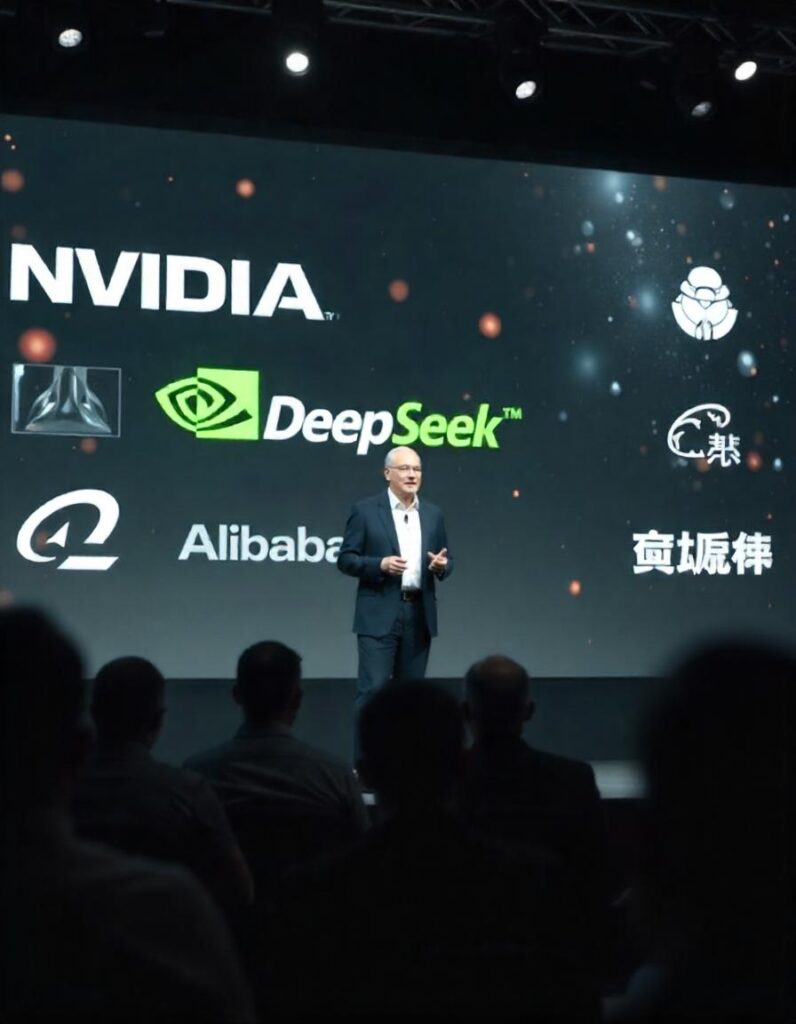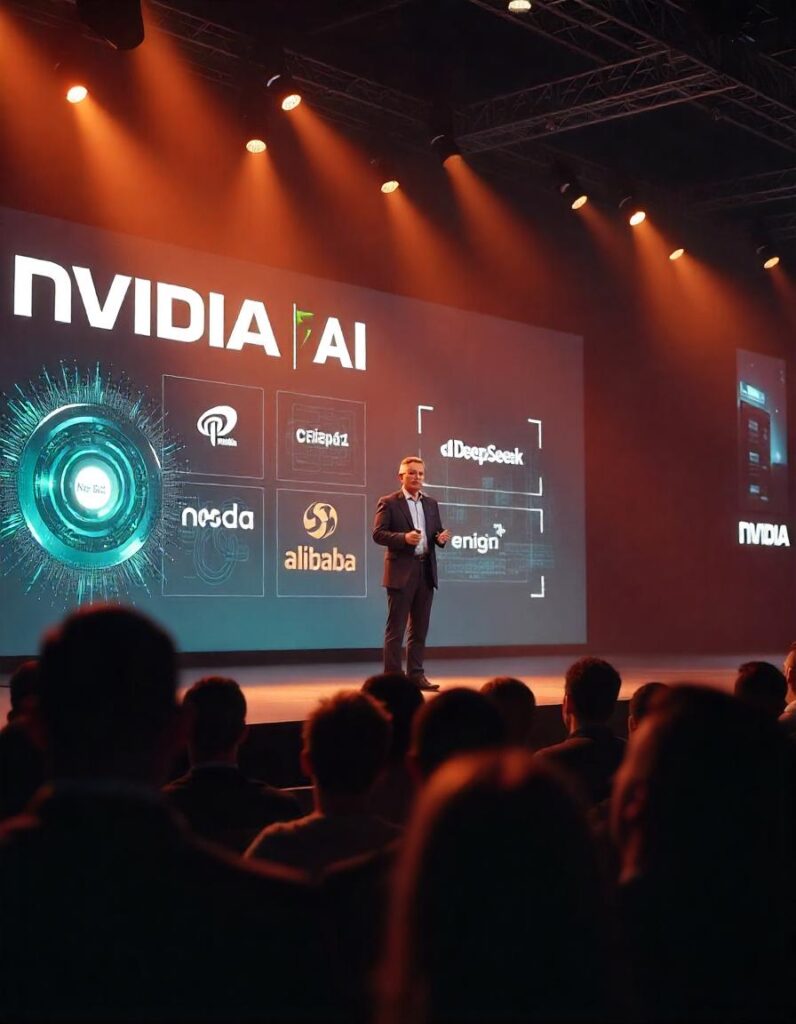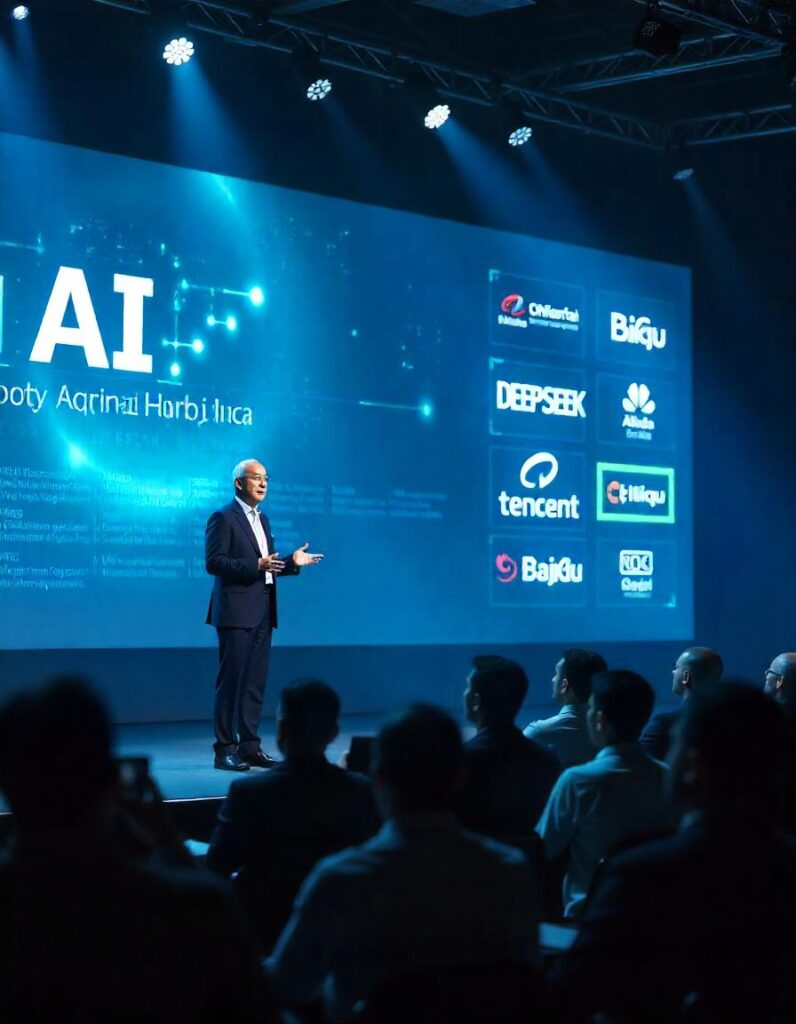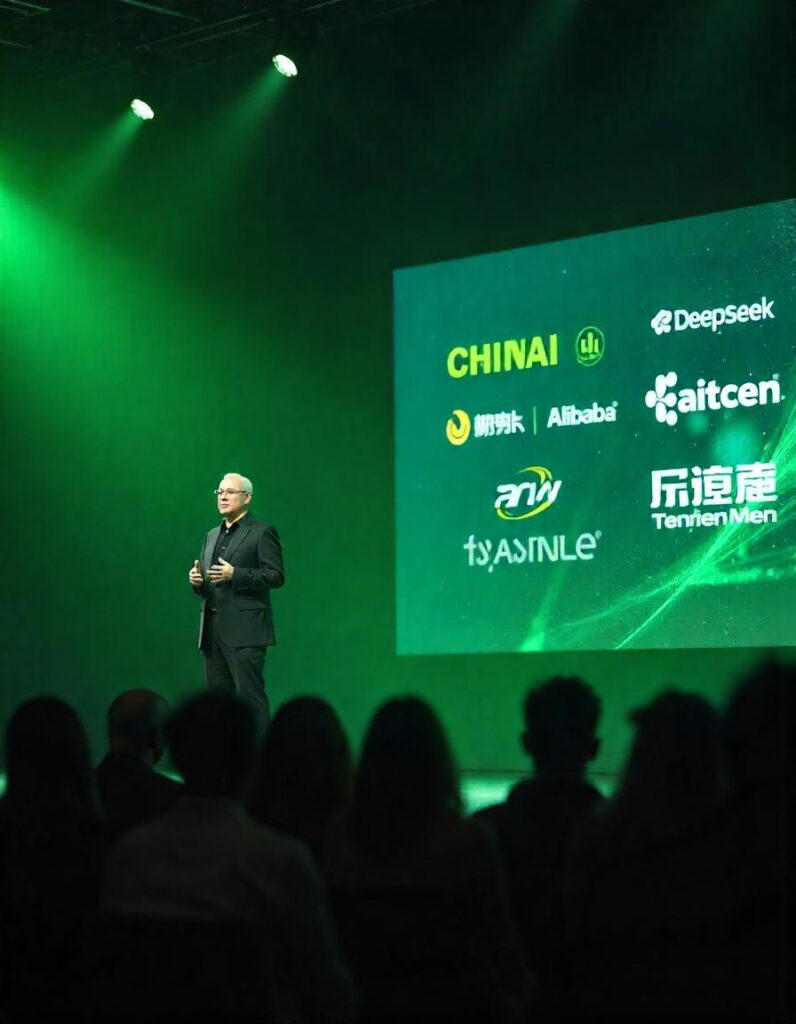Nvidia CEO Jensen Huang praises China’s AI models as chip exports resume, highlighting open-source innovation and future global AI collaboration.
Jensen Huang Applauds China’s AI Advancements as Nvidia Prepares to Resume Chip Exports
BEIJING – Nvidia CEO Jensen Huang praised China’s rapid progress in artificial intelligence during a speech at the Beijing Supply Chain Expo, just one day after the company confirmed it expects to resume sales of its H20 AI chips to China.

Huang highlighted the strength and innovation of Chinese AI models, including DeepSeek, Alibaba, Tencent, MiniMax, and Baidu’s Ernie Bot, calling them “world-class” and instrumental in advancing AI development globally.
“More than 1.5 million developers in China are building on Nvidia platforms to power their innovations,” Huang noted.
Chinese AI Surging Despite U.S. Chip Sanctions
In January, Chinese startup DeepSeek stunned the global AI community by launching a model that undercut industry leader OpenAI in both development and operational costs. Despite strict U.S. chip restrictions, DeepSeek’s parent company, High-Flyer, allegedly secured a stockpile of Nvidia chips to fuel its progress.
Nvidia’s announcement on Tuesday to resume shipments of the H20 chip to China followed U.S. government approval. Sales were previously halted in April due to updated export regulations.
Financial Impact of U.S. Export Controls
The U.S. chip export ban has had a significant impact on Nvidia’s business in China. The company revealed it lost approximately $2.5 billion in the April quarter and is projecting another $8 billion loss in the current quarter. CEO Jensen Huang previously stated these restrictions slashed Nvidia’s Chinese market share by nearly half.
Despite these losses, the potential return of H20 chip exports is already generating optimism. Analysts, including Gene Munster of Deepwater, suggest it could boost Nvidia’s market performance by 10%.
Huawei Positioned to Gain
Huang also warned that Huawei could gain competitive ground due to the U.S. export restrictions, positioning the Chinese telecom giant as a beneficiary in the AI chip race.
This marks Huang’s third visit to China in 2025, reflecting Nvidia’s continued interest in the Asian market despite geopolitical hurdles.

Championing China’s Open-Source AI Approach
A key part of Huang’s speech praised China’s commitment to open-source AI development. He emphasized that this transparent model fosters global cooperation and boosts AI safety.
“China’s open-source AI is a catalyst for global progress,” Huang said. “It gives every country and industry a chance to join the AI revolution.”
He pointed to Alibaba-backed Moonshot’s Kimi K2 as a prime example. This model, released last week, reportedly surpasses OpenAI’s ChatGPT and Anthropic’s Claude in certain coding benchmarks.
AI Driving China’s Digital Ecosystem
Huang underscored how AI powers China’s leading tech applications such as:
- WeChat by Tencent
- Taobao by Alibaba
- Douyin by ByteDance
- Meituan’s delivery platform
These services, he said, demonstrate AI’s ability to enhance everyday life and consumer convenience on a massive scale.

Evolving U.S.-China Tech Relations
The latest easing of U.S. export controls follows recent diplomatic efforts, including trade talks in London. The U.S. has begun to relax certain high-tech export bans, while China has restarted license approvals for exporting rare earth materials essential to American tech manufacturing.
While concerns persist over military use of U.S. technologies, Huang reiterated the importance of global access to AI tools, warning that limiting availability could hinder innovation.
“To lead in AI, we must collaborate across borders,” Huang told CNN earlier this week.
As Nvidia navigates the complex U.S.-China tech landscape, Huang’s comments reflect a broader call for cooperation over restriction in the global race for AI leadership.

❓ FAQs About Nvidia, China, and AI Developments
Q1: Why did Nvidia halt chip exports to China?
A: Nvidia paused its AI chip exports to Chin due to updated U.S. government export restrictions, aimed at preventing advanced semiconductor sales that could support China’s defense sector.
Q2: What is the H20 chip, and why is it important?
A: The H20 is a specialized AI chip developed by Nvidia. It plays a crucial role in powering generative AI models. Its expected return to the Chinese market could significantly impact Nvidia’s revenue.
Q3: What is DeepSeek, and how did it challenge OpenAI?
A: DeepSeek is a Chinese AI model that gained attention for offering competitive capabilities at lower costs than OpenAI’s solutions. It surprised the industry by advancing despite U.S. chip restrictions.
Q4: What does Jensen Huang mean by open-source AI?
A: Open-source AI refers to AI models where the source code is publicly available. Huang praised Chiina’s open-source approach for promoting transparency, safety, and international collaboration.
Q5: How do Chinese apps use AI in daily life?
A: Leading Chinese platforms like WeChat, Taobao, Douyin, and Meituan integrate AI to enhance user experience—improving personalization, search, logistics, and real-time interactions.
